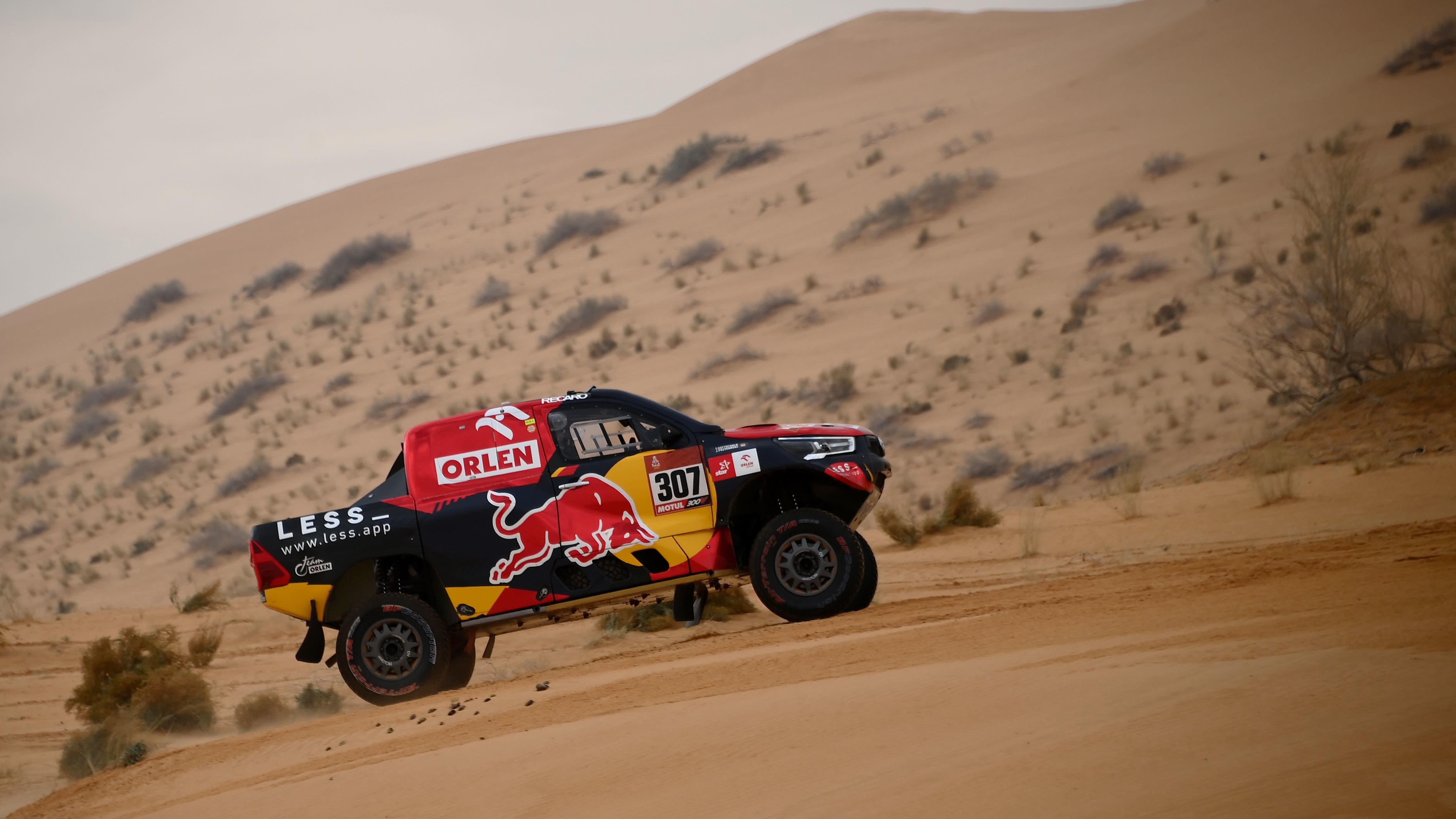2021's Dakar Route Has Been A Disaster
The Dakar Rally is intended to be one of the most difficult motorsport events in the world, but things have been something of a hot mess in 2021. Competitors are struggling with the updated Saudi Arabian route, to the point where it's actually having a negative impact on the event as a whole. The legendary Sebastian Loeb has titled it a "race of co-drivers, not drivers." And he's not the only experienced racer to pose some criticism.
Even the most experienced racers are getting lost in the desert, a problem so bad that Stage Six had to be delayed and shortened because so few competitors were able to find their way to the checkpoint after the the fifth stage. It was shortened by 100 kilometers (62 miles) but still proved to be almost overwhelmingly challenging.
Carlos Sainz, four-time Dakar champion, has publicly stated that "this isn't the Dakar." He continued:
I am a little demoralized and upset, because the rally looks more like a gymkhana than a rally-raid,. I've been on 14 Dakars and I've never been lost two days and lost half an hour in each one, nor have I seen everyone lost. This isn't the Dakar.
We really need... this is becoming more of a gymkhana than a rally. What we have seen so far is not a rally... I just don't like it. It's more like a lottery, something like finding... this is not rallying. I'm really fed up.
"It's a gymkhana with the navigation. We've never had anything like it. Everybody gets lost, everybody tries to find the point... it's not what I like, at least.
One big problem here is the fact that the roadbooks that outline what to expect from a stage have been withheld from drivers until fifteen minutes before the beginning of the stage. The ACO, the sanctioning body that hosts Dakar, has added extra notes to help guide drivers and co-drivers through these stages, but the crews themselves don't have a chance to make their own notes about what to expect and how to tackle upcoming challenges.
Loeb added the following to his concerns about the organization of 2021's event:
It's quite tricky because the tracks are not really visible. We follow the tracks and we arrive to the point where the tracks disappear and there are plenty of lines going everywhere and we don't know what to do.
So we are turning from point to point in many rocky areas and it is no fun to drive. The times we were lost we were on a track, so it is quite difficult to understand what to do.
I don't want to criticize the roadbook. This is more a question for the co-driver, but honestly it may be the different terrain, but compared to the race in South America, the navigation is much more aggressive this year.
The truth is that as a driver I cannot make the difference. I do what I'm told to do. It's the race of co-drivers, not the race of drivers"
Loeb later went on to call the organizers "incompetent."
Mathieu Baumel's co-driver, Nasser Al-Attiyah, expressed praise for the roadbook situation, saying that it's a rally about adapting and breaking the established molds for what's expected of Dakar.
He did note that reading the book can be a challenge. Instead of being written on paper, it's added to an electronic tablet. Information can be tucked away in small, difficult to read boxes, but Al-Attiyah has developed a system with Baumel. He raises his hand when he's not sure what the roadbook is saying, and Baumel slows down. "I think it's better to slow down five seconds than to lose ourselves," he said.
While it might be tempting to say this is a case of veterans struggling to adapt to a new system, enough teams have been struggling to suggest that this is becoming a genuine problem.
